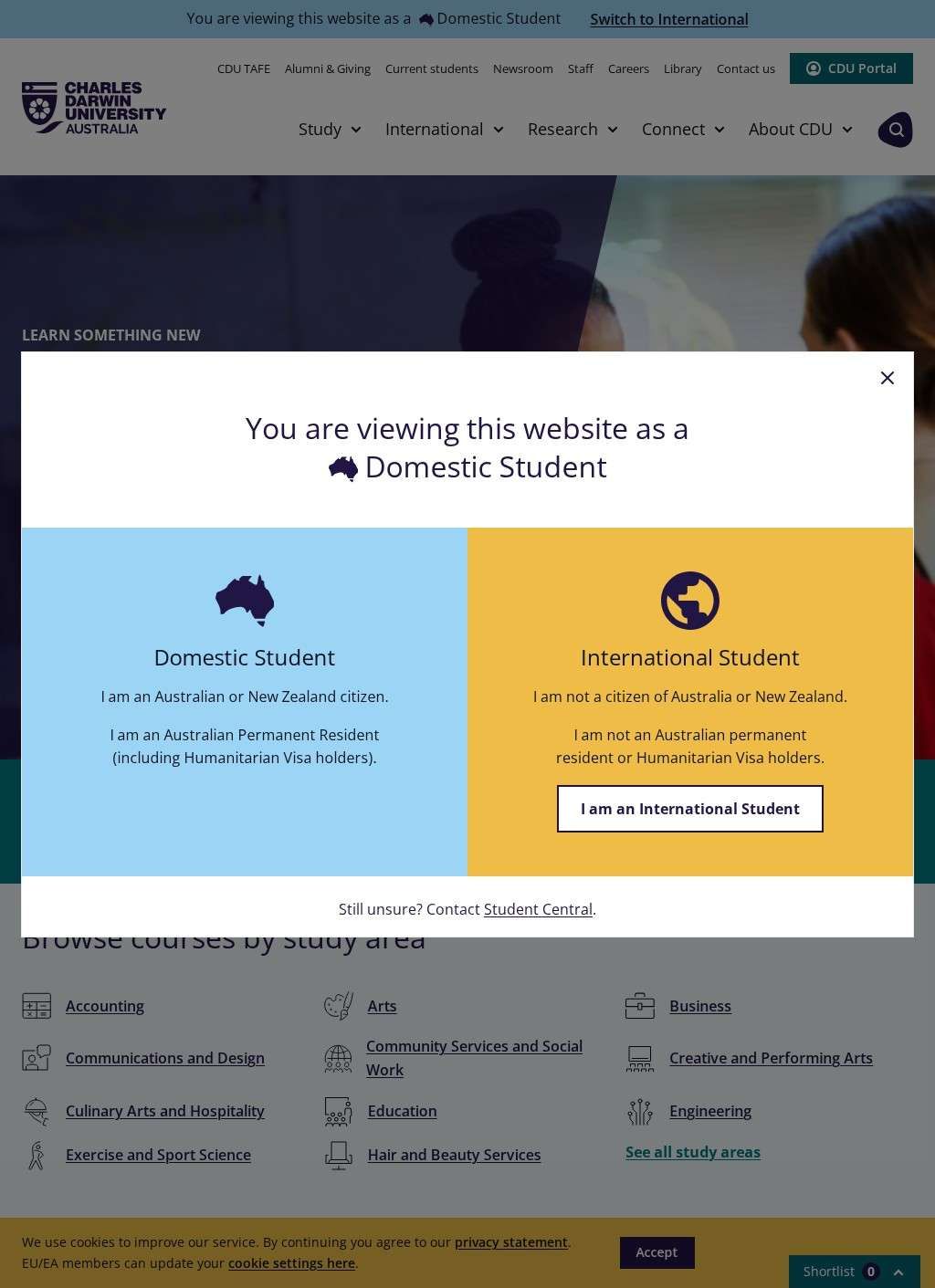Charles Darwin University occupies a unique position within Australia's higher education landscape as the sole university serving the Northern Territory and one of the few institutions globally that combines comprehensive university programs with vocational education and training under a single organizational structure. This dual-sector approach reflects practical realities of serving a sparsely populated region where traditional educational boundaries often prove counterproductive. CDU's mission extends beyond conventional university education to include workforce development, community engagement, and research initiatives that directly address Northern Territory development challenges.
The university's campus network spans the Territory's vast geography, with the main Casuarina campus in Darwin complemented by regional centers in Alice Springs, Katherine, and other remote locations. The recently opened Danala campus in Darwin's Education and Community Precinct represents a significant expansion, featuring state-of-the-art facilities that house the CDU Library, Art Gallery, and Territory FM radio station. This campus design reflects CDU's commitment to community integration, creating spaces where university activities blend seamlessly with broader public services and cultural programs.
Research programs focus heavily on topics relevant to tropical and remote area challenges, making CDU a global leader in fields like tropical medicine, environmental management, and indigenous studies. The Menzies School of Health Research, integrated with CDU since 2003, conducts internationally recognized research on infectious diseases, health systems, and population health issues affecting tropical regions worldwide. This research directly benefits Territory communities while contributing to global knowledge about health challenges in similar environments.
Student demographics reflect both the Territory's diversity and CDU's role as an accessible institution for non-traditional students. The university ranks among Australia's top institutions for first-generation university students, recognizing that many Territory residents come from backgrounds where higher education wasn't previously accessible. Aboriginal and Torres Strait Islander students comprise a significant portion of the student body, supported by specialized programs that respect cultural protocols while providing academic pathways to professional careers.
Academic programs span traditional university disciplines while emphasizing practical applications relevant to Northern Territory industries and communities. Engineering programs focus on mining, infrastructure, and environmental challenges specific to tropical and arid regions. Business programs incorporate Asian perspectives reflecting the Territory's geographic position and trade relationships. Education programs train teachers for remote and indigenous communities, addressing specific challenges like multilingual classrooms and culturally responsive pedagogy.
Flexible learning options acknowledge the realities of serving students across vast distances and diverse circumstances. CDU's thirty-year experience in distance education predates most online learning programs, having developed sophisticated support systems for students who might be stationed on remote cattle properties, working in mining operations, or living in communities hundreds of kilometers from campus. These programs maintain academic rigor while accommodating work schedules and family commitments that often characterize Territory life.
Industry partnerships reflect CDU's commitment to producing job-ready graduates who can contribute immediately to Territory economic development. Work-integrated learning programs connect students with mining companies, government agencies, health services, and tourism operators throughout the Territory. These partnerships often lead directly to employment, contributing to CDU's strong graduate employment outcomes and reputation for career-focused education.
Research collaborations extend internationally, particularly with institutions in Southeast Asia and the Pacific region. These partnerships reflect both geographic proximity and shared research interests in tropical development, cross-cultural studies, and environmental management. Student exchange programs provide Territory students with international experience while bringing international perspectives to CDU campuses, enriching the educational environment for all participants.
Community engagement programs demonstrate CDU's commitment to serving Territory communities beyond traditional student populations. Public lectures, cultural events, and community research projects create ongoing connections between university expertise and community needs. The university's art gallery and cultural programs contribute to Darwin's cultural scene while providing platforms for Aboriginal artists and Territory cultural expressions.
Accommodation options include residential colleges and apartments that create community experiences for students who might otherwise study in isolation. These facilities recognize that many Territory students come from remote locations where university culture represents a significant transition. Support services include academic counseling, cultural support programs, and financial assistance designed to help students succeed despite the challenges of university study in a remote location.
The website provides comprehensive information about admission requirements, scholarship opportunities, and application processes designed to accommodate the diverse backgrounds of potential Territory students. Contact information includes regional representatives who understand local conditions and can provide personalized guidance about educational pathways. These services recognize that accessing higher education from remote Territory locations often requires more support than urban students typically need.
Professional development and continuing education programs serve Territory professionals who need ongoing skill development but cannot easily access metropolitan universities. These programs often focus on fields like health, education, and natural resource management where professional requirements continue evolving but practitioners must remain in Territory locations to serve local communities effectively.
